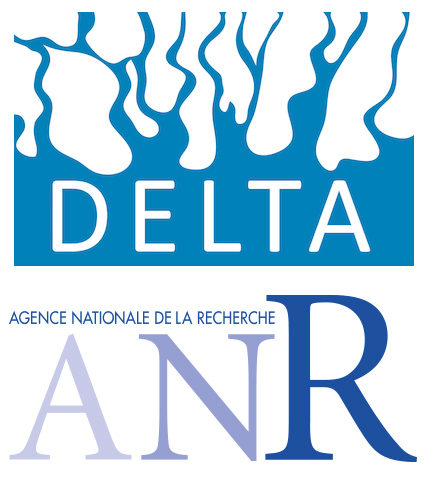Deltas under the impact of global change – DELTA
Deltas, low-lying areas, are dynamic environments located at the continent-ocean interface. Composed of nutrient-rich sediments, these regions are among the most fertile in the world. These agricultural plains represent less than 1% of the earth’s surface and yet are a key issue for the food security of more than half a billion people. Deltas have a natural tendency to subsidence, which is amplified by human activities. This subsidence combined with sea level rise – one of the major consequences of climate change -, a rapidly growing population and a growing human footprint on the watersheds, threatens the fragile balance of these interface zones by amplifying the risk of flooding. Today, this risk is neither sufficiently understood nor integrated into adaptation plans, particularly in the major Asian deltas, positioning the food and economic security of populations in the face of major challenges. There is an urgent need to address these particular and complex coastal regions.
The Bengal Delta in Bangladesh is the largest deltaic region in the world. Bordered by three major transboundary rivers (the Ganges, Brahmaputra and Meghna), it is also subject to intense cyclonic activity. Its very low elevation (a few meters above sea level) and its extreme population density (150 million inhabitants) make it an area of very high vulnerability to the hazards of cyclonic marine submersion and river flooding.
The ANR-DELTA project is an inter-disciplinary project on deltaic regions, mixing physical and human sciences, whose objectives are 1) to identify the processes involved in coastal flooding linked to extreme weather-sea events (cyclones, storms and overcoasts) and 2) to determine the populations vulnerable to flooding hazards today, 50 years from now and up to 2100. The regions of application of the project are the Ganges-Brahmaputra (West Bengal in India and Bangladesh) and Irrawaddy (Myanmar) deltas.
Map of the study site :
ANR JCJC – Jeunes Chercheurs Jeunes Chercheuses
Durée : 2018-2021 (48 mois)
Budget : 222k€
DS01 – Gestion sobre des ressources et adaptation au changement climatique
